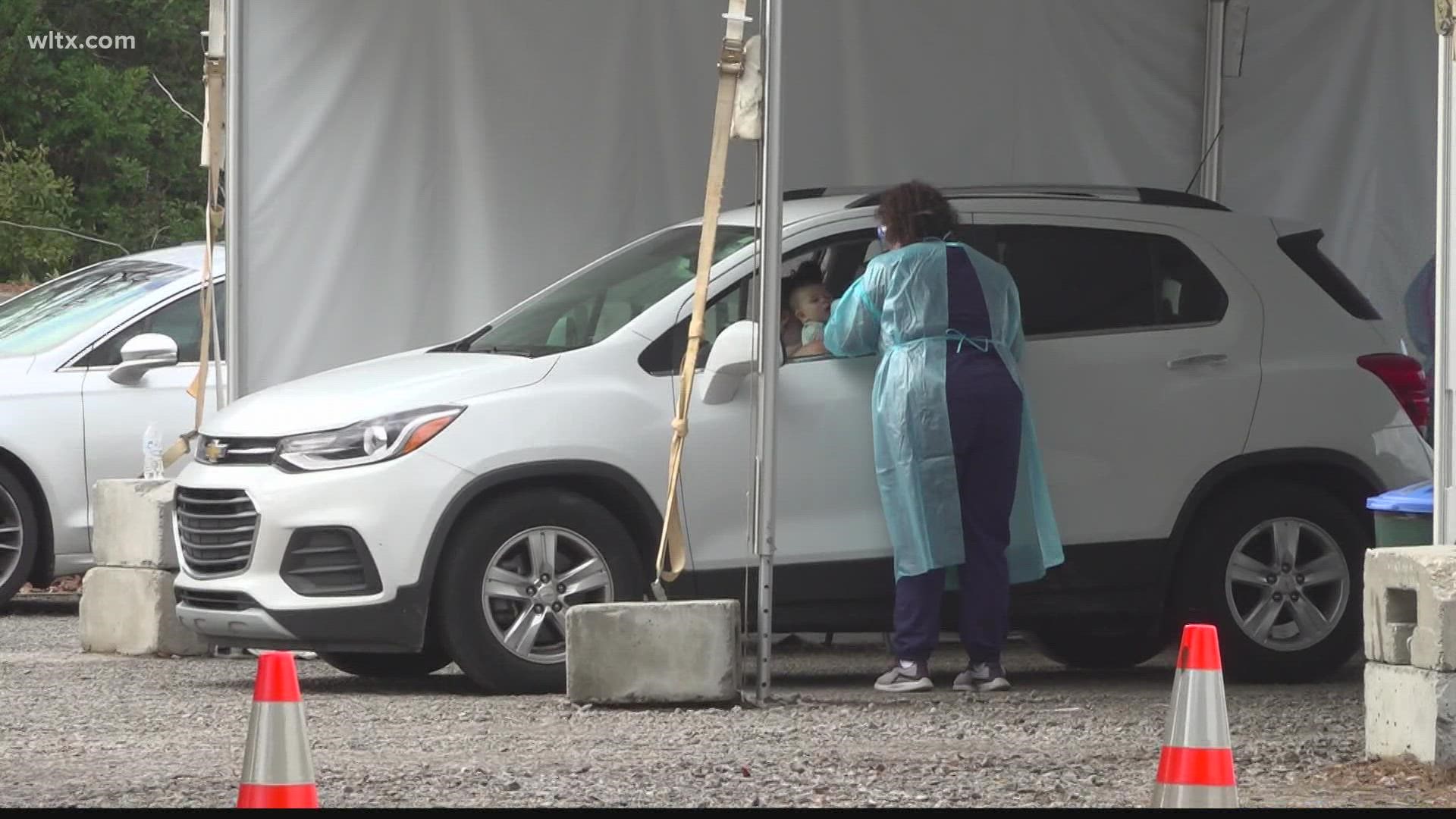COLUMBIA, S.C. — Long lines of cars have become common at COVID testing sites across the midlands as South Carolina set its record for the most COVID cases in a single day on Friday.
Dr. Todd Crump from Lexington Medical Center said he's seen hundreds of people coming to the emergency room looking for a test after Christmas.
“There's a lot of panic testing going on, and that's why you can't find a rapid test at the drugstore," said Crump.
So when exactly should you get tested?
The CDC recommends testing if you have COVID symptoms or have been in close contact with someone who's tested positive.
If you're vaccinated, test five-to-seven days after your last exposure. If you're not vaccinated, get tested right away.
If the test is negative, test again five to seven days after your last exposure or as soon as symptoms develop.
There are currently two tests on the market: rapid and PCR. Doctor Crump explained the difference between the two.
"The rapid test basically looks for fragments of the virus that have been shared. And so you usually have to have symptoms for a few days before that test will be positive," said Crump. "The PCR test actually measures the DNA or actually the RNA, the genetic material, and the COVID virus."
Health officials said it appears the omicron variant is less severe than the delta variant. That means that most symptoms such as a runny nose or a cough can be treated at home.
“Call your regular doctor if you need to, but if your symptoms are mild and you can take care of yourself at home, then I encourage people to do that so we avoid overcrowding the ERs," said the director of public health at DHEC, Dr. Brannon Traxler.
Dr. Crump said there are several ways you can treat your symptoms at home.
“If you aren't having any difficulty breathing or catching your breath. I recommend trying an over-the-counter antihistamine or some Mucinex and usually symptoms resolve in a couple of days,” said Crump.
DHEC said they're working on adding more testing sites throughout the state in addition to increasing the testing capacity of current sites in order to decrease wait times.

